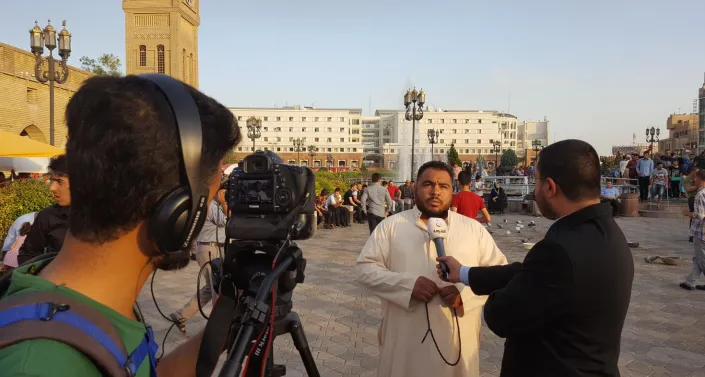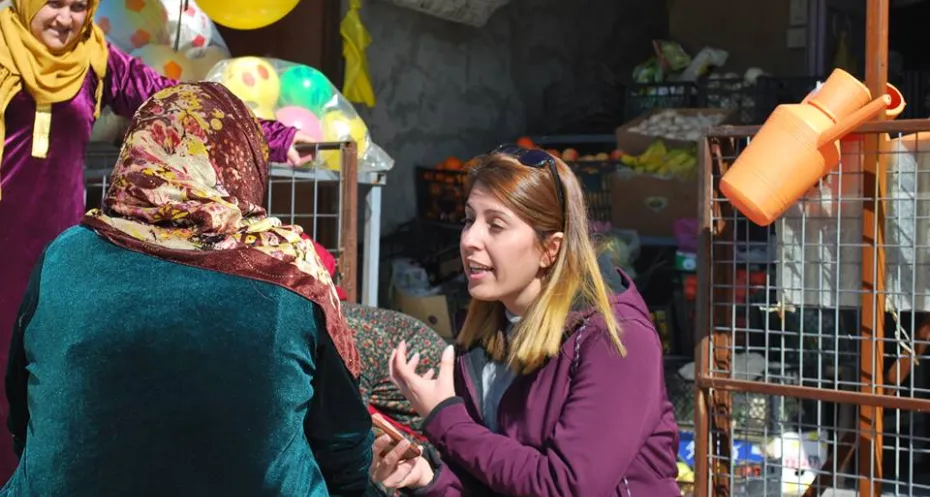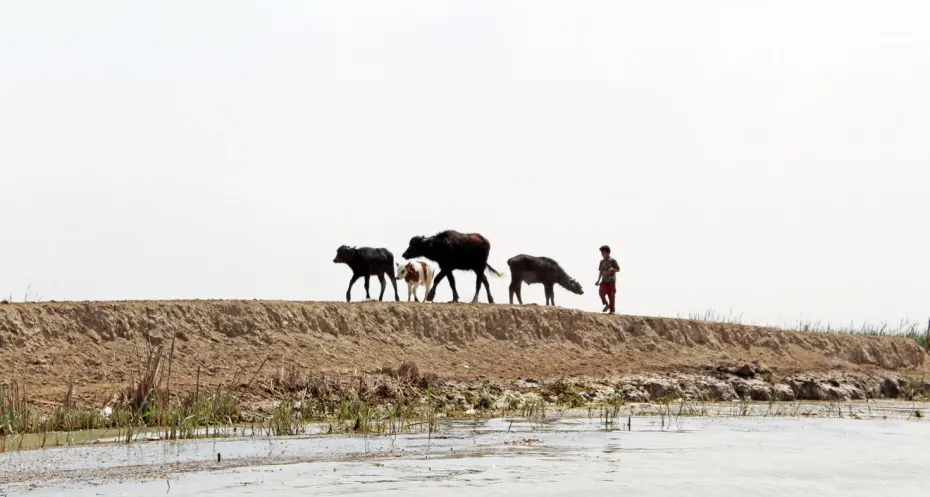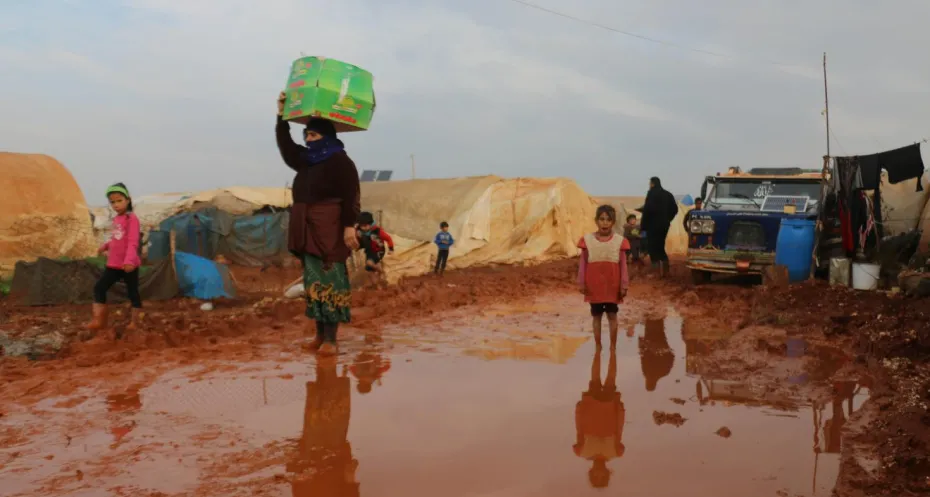
Iraq
Because of the nature of the political landscape in Iraq, journalists are already at risk simply for doing their job. Those who protest or report on corruption are a direct target. According to UNESCO, 198 media professionals were murdered between 2006 and 2018. Especially since the anti-government protests in October 2019, journalists have faced intimidation, kidnappings, attacks and killings by militias, which went unpunished. The country ranks 172 on the RSF World Press Freedom Index.
The increasing popularity of online media where journalists and activists can usually freely post their findings, has caught the attention of the state. The proposed cybercrime law is seen as a tool for cracking down on independent media. The use of internet shutdowns and the closure or ban of media outlets is also seen as an effective strategy to silence dissident voices, especially during protests and unrest.
Media as a propaganda tool
The diversity of communities in Iraq and the Kurdish region is reflected in a splintered media landscape. In addition to a separation of content in the Kurdish and Arabic languages, media outlets are all too often used, and seen, as propaganda tools. Promoting inclusive and accessible independent media across social divides is vital to the peace-building process in the region.
Attacks on women journalists
The Iraqi media is largely male-dominated, both in terms of content and in the newsroom. Women journalists face an increased risk of harassment and threats to their physical safety and well-being. Women in the public eye are often targeted. In 2018, for example, three Iraqi beauty bloggers were killed in Baghdad. Their killings are a symbol of the gender-based violence that restricts women in the media, which in turn results in widespread self-censorship.
Our work in Iraq
In 2017, following efforts by Free Press Unlimited and UNESCO, the Iraqi government finally submitted its first ever report to UNESCO's director general on the number of journalists killed in that year. These reports are important because they describe the actions taken after each murder. This sends a clear message to the perpetrators: crimes against journalists do not go unnoticed.
Following up on this, Free Press Unlimited and UNESCO supported the formation of a National Committee of Safety and Impunity, which consists of local civil society organisations, government representatives and the journalists' union. This committee meets regularly to discuss security issues. Another body, the Special Investigations Unit (SIU), has been set up specifically to investigate attacks on journalists.
In the Kurdish regions, Free Press Unlimited supports Kirkuk Now, a leading independent media outlet that reports through a network of reporters in the disputed areas.
Many communities in Iraq are experiencing the impact of climate change and water-related crises in particular. That is why Free Press Unlimited also considers climate reports to be an important focus for media in Iraq. Together with the Clingendael Institute, Free Press unlimited supports fellowships that give Iraqi journalists the resources and capacity to report on local climate-related issues and have them published on a national and international scale.



